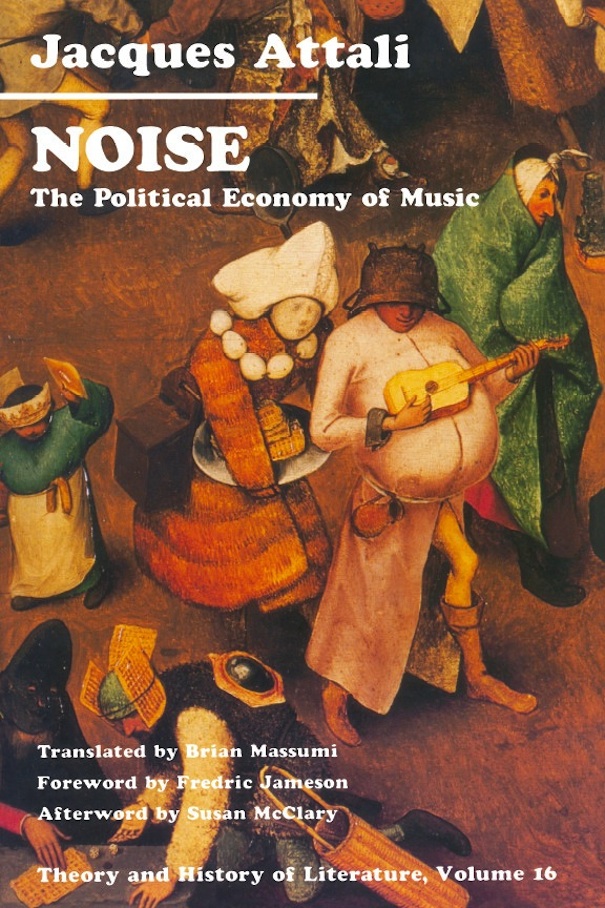Nigel Thrift: Knowing Capitalism (2005)
Filed under book | Tags: · actor-network theory, anthropology, capitalism, complexity theory, computing, cultural economy, economics, economy, genetic algorithms, geography, information technology, rfid, social theory

Capitalism is well known for producing a form of existence where `everything solid melts into air’. But what happens when capitalism develops theories about itself? Are we moving into a condition in which capitalism can be said to possess a brain?
These questions are pursued in this sparkling and thought-provoking book. Thrift looks at what he calls “the cultural circuit of capitalism,” the mechanism for generating new theories of capitalism. The book traces the rise of this circuit back to the 1960s when a series of institutions locked together to interrogate capitalism, to the present day, when these institutions are moving out to the Pacific basin and beyond. What have these theories produced? How have they been implicated in the speculative bubbles that characterized the late twentieth century? What part have they played in developing our understanding of human relations?
Building on an inter-disciplinary approach which embraces the core social sciences, Thrift outlines an exciting new theory for understanding capitalism. His book is of interest to readers in Geography, Social Theory, Antrhopology and Cultural Economics.
Publisher SAGE Publications, 2005
Published in association with Theory, Culture & Society
Theory, culture & society
ISBN 141290059X, 9781412900591
Length 256 pages
Jacques Attali: Noise: The Political Economy of Music (1977–) [FR, EN, ES, TR]
Filed under book | Tags: · cultural economy, cultural production, music, music history, noise, political economy

“Attali’s essential argument in Noise: The Political Economy of Music is that music, as a cultural form, is intimately tied up in the mode of production in any given society. For Marxist critics, this idea is nothing new. The novelty of Attali’s work is that it reverses the traditional understandings about how revolutions in the mode of production take place.
Attali believes that music has gone through four distinct cultural stages in its history: Sacrificing, Representing, Repeating, and a fourth cultural stage which could roughly be called Post-Repeating. These stages are each linked to a certain “mode of production”; that is to say, each of these stages carries with it a certain set of technologies for producing, recording and disseminating music, and also concomitant cultural structures that allow for music’s transmission and reception.”
French edition
Publisher PUF, Paris, 1977
301 pages
English edition
Translated by Brian Massumi
Foreword by Fredric Jameson
Afterword by Susan McClary
Publisher Manchester University Press, Manchester, 1985
Theory and History of Literature, Volume 16
ISBN 0719014719, 9780719014710
179 pages
Reviews: Edinburgh Review (1986), Dana Polan (SubStance, 1988), Ronald M. Radano (Ethnomusicology, 1989), Steven Shaviro (2005), notbored.org (n.d.), J. Szigeti (2014).
Outline: Theodore Gracyk.
Commentary: Eric Drott (Critical Inquiry, 2015).
Bruits: essai sur l’economie politique de la musique (French, 1977, added on 2021-4-11)
Bruits: essai sur l’economie politique de la musique (French, new ed., 1977/2001, added on 2013-9-25, updated on 2021-4-11)
Noise: The Political Economy of Music (English, 1985, updated on 2012-7-24)
Ruidos: ensayos sobre economía política de la música (Spanish, trans. Ana María Palos, 1995, updated on 2021-4-11)
Gürültüden müziğe: müziğin ekonomi-politiği üzerine (Turkish, trans. Gülüş Gülcügil Türkmen, 2005/2014, EPUB, added on 2021-4-11)
Fred Turner: Burning Man at Google: A Cultural Infrastructure for New Media Production (2009)
Filed under paper | Tags: · activism, art, cultural economy, labour, peer production, technology
Every August for more than a decade, thousands of information technologists and other knowledge workers have trekked out into a barren stretch of alkali desert and built a temporary city devoted to art, technology and communal living: Burning Man. Drawing on extensive archival research, participant observation, and interviews, this paper explores the ways that Burning Man’s bohemian ethos supports new forms of production emerging in Silicon Valley and especially at Google. It shows how elements of the Burning Man world – including the building of a socio-technical commons, participation in project-based artistic labor, and the fusion of social and professional interaction – help shape and legitimate the collaborative manufacturing processes driving the growth of Google and other firms. The paper thus develops the notion that Burning Man serves as a key cultural infrastructure for the Bay area’s new media industries. (Abstract)
Key Words: peer production, counterculture, cultural economy, art and technology, cultural infrastructure, free labor.
Published in New Media & Society 11, 2009
Comment (0)
